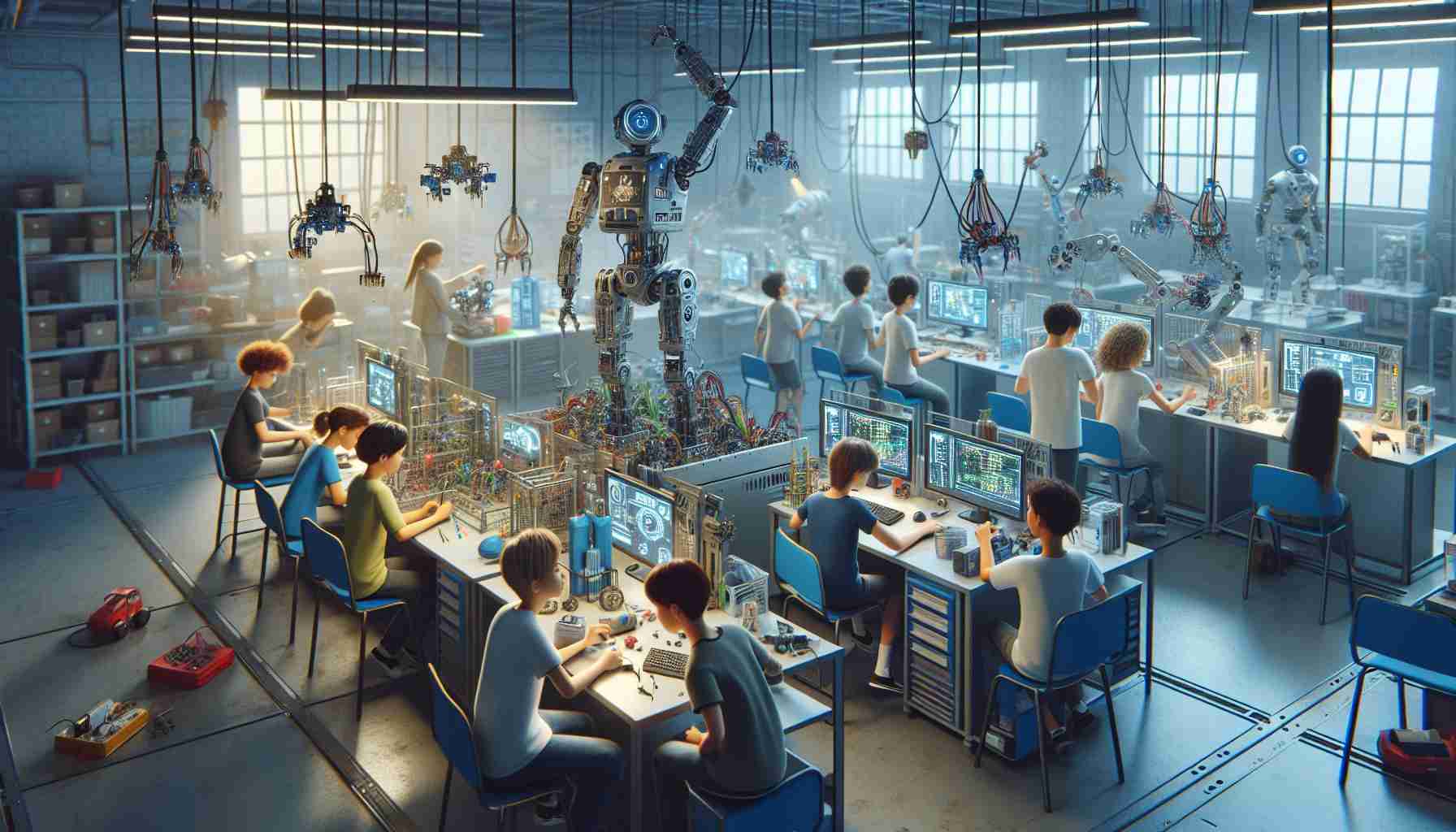In a small Michigan town, students are paving the way for a high-tech future. At Au Train-Onota Middle School, excitement is building as students gear up for another season of their acclaimed robotics program. This year’s kick-off included an inspiring Zoom session with experts from the Woods Hole Oceanographic Institution, renowned for discovering the Titanic.
Seventh-grader Harper Cadwell eagerly anticipates exploring the world of robotics. For her, the opportunity to delve into this field is both thrilling and a privileged experience, setting her apart from many peers.
This program, now in its third year, has already proven to be a beacon of success. The robots crafted by these innovative students have earned several awards and have even supported local conservation efforts in collaboration with the Alger Conservation District.
Amy Pihlainen-Gabler, a committed middle school teacher, envisions these interactions sparking a passion for robotics among students. She emphasizes the importance of demonstrating how classroom theories are applied in real-world settings, beyond just competitions.
As Harper looks forward to building a new robot with her classmates, she shares her enthusiasm for the competitive aspect of robotics. Initial jitters quickly transform into excitement as the intensity of the competitions overtakes them, making these experiences unforgettable.
The students plan to embark on their latest robotic creation just after the holiday season. With a track record of success and a supportive community, the prospects for these young innovators are incredibly bright.
The Hidden Revolution: How Small Town Robotics Programs Propel Us Toward a High-Tech Future
In the quaint corners of small towns like Au Train-Onota in Michigan, a quiet revolution is stirring that may shape the future of technology and humanity. While the spotlight shines on tech giants and global innovators, it’s in these grassroots initiatives that some of the most impactful developments begin to take form. Recently, students from this middle school engaged with leading experts from the Woods Hole Oceanographic Institution, highlighting the fusion of education and cutting-edge science. But what often goes unnoticed are the broader implications that such programs harbor for our future.
Nurturing the Next Generation of Innovators
Beyond the immediate excitement of building award-winning robots, programs like these influence the development of critical skills that will define the workforce of tomorrow. Students, like seventh-grader Harper Cadwell, gain firsthand experience with technology, encouraging curiosity and enthusiasm towards STEM fields. A significant advantage is that such grassroots programs often cultivate a diverse pool of talent, including students from varied backgrounds who may not otherwise have exposure to robotic technologies.
Exciting Facts and Controversies
One fascinating aspect of these programs is their ability to integrate educational curriculums with practical, real-world applications. The collaboration with the Alger Conservation District highlights robotics’ potential beyond conventional domains, extending into environmental conservation and sustainable practices. However, this intersection of technology and nature isn’t without its controversies. There’s an ongoing debate regarding the ethical dimensions of technology potentially replacing human efforts in conservation work. Is there a risk that we may rely too heavily on machines at the expense of human expertise?
Impact on Future Technologies and Society
Programs like these are microcosms of a larger trend: the democratization of technology education. By bringing cutting-edge experiences to the heart of small communities, these initiatives could level the playing field in technological advancements, contributing to an inclusive technological future. Furthermore, by instilling problem-solving and analytical skills early, we’re preparing humanity for unforeseen challenges, ensuring that the next generation can adeptly address complex global issues.
Pros and Cons
An evident advantage is the empowerment of young minds who are encouraged to think critically and creatively, becoming equipped to handle future technological challenges. However, a potential downside is the dependency on continuous funding and resources to sustain such programs, which can be a challenge in economically constrained areas. Additionally, there is a concern about ensuring these programs remain inclusive and accessible to all students, rather than just a privileged few.
How Will This Affect Humanity and Technology?
As we further integrate technology into our lives, educational initiatives like Au Train-Onota’s robotics program will play a pivotal role in shaping future innovators. By embedding technological literacy into educational curriculums early, we’re laying the groundwork for a society that is both creators and not merely consumers of technology. Are we ready to fully embrace this premise, and how will it redefine our relationship with technology in the societal fabric?
For more insights and developments in robotics and technology education, you may explore Robotics Education & Competition Foundation and Woods Hole Oceanographic Institution.
